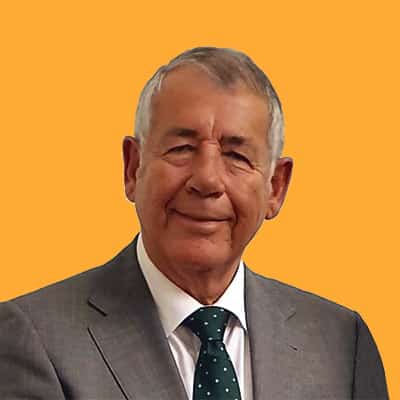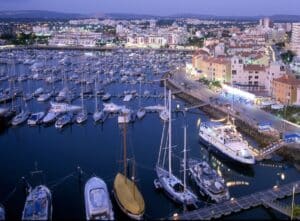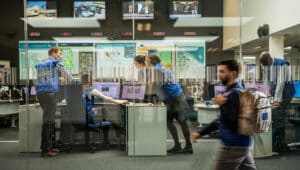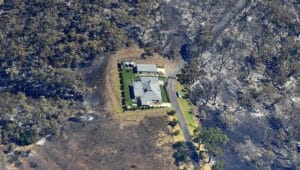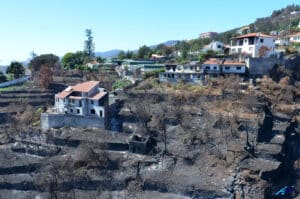I recently made a presentation via Zoom to Rotary Club Estoi Palace International of how individual criminals and organised crime groups have been quick to exploit the crisis induced by the Covid-19 pandemic, adapting their activities and ways of operation (modi operandi) to the new situation.
This also illustrates the need for the utmost integrity and adherence to the highest standards ranging from the sourcing of personal protective equipment, face masks, test kits through to the actual vaccines themselves, as fake or substandard products pose a considerable health risk to those concerned.
An analysis by Europol has established that the (online and offline) distribution of counterfeit and substandard PPEs, pharmaceutical and sanitary products, including fake ‘corona home test kits’ and alleged vaccines preventing Covid-19 infection, remains a consistent pandemic-related criminal activity.
Pandemic-themed campaigns have appeared across a wide range of cybercrime activities, including phishing campaigns, ransomware, malware and business email compromise attacks. Healthcare and health-related organisations have also been targeted and fallen victim to ransomware attacks.
The volume of fake news, conspiracy theories and harmful narratives undermining public institutions disseminated online around the Covid-19 pandemic has been substantial.
World Health Organisation – sale of vaccines
At the end of March, WHO Director-General Tedros Adhanom Ghebreyesus warned of vaccine doses entering the system in any other way than through regular supply channels.
Health ministries and regulatory agencies around the world received suspicious offers to supply vaccines, along with reports that “criminal groups” were reusing packaging. He warned not to buy vaccines outside government-run vaccination programmes. Such doses could be “substandard or falsified, with the potential to cause serious harm”.
Europol warnings
In December, Catherine De Bolle, Executive Director of Europol, gave the following, and I feel, very profound statement on this issue: “We have seen with the current Covid-19 crisis that criminals have no problems in abusing people’s fears. Criminals always look for new opportunities to make a profit and it is always on the back of the citizens.
“Counterfeit and misused medicines are a growing threat not only because it generates large illegal profits, but because it also represents a serious risk to public health. We can only combat this global danger together.”
Fraud in the pharmaceutical industry
Criminal elements have exploited the pharmaceutical industry for many years through the sale of fake medicines and when I was working in Interpol some 15 years ago, this was an emerging problem then.
One of the largest enforcement actions took place in December 2020 when Europol coordinated Operation Shield, a global effort to target trafficking of counterfeit and misused medicines and doping substances. The operation was led by Finland, France, Greece and Italy and involved law enforcement authorities from 27 countries.
This resulted in seizures worth nearly €73 million; more than 25 million units of medicines and doping substances seized; 667 suspects arrested; 1,282 individuals reported to judicial authorities; 25 organised crime groups dismantled; 10 clandestine laboratories seized and 453 websites shut down. Included in this, specific to Covid-19, were the seizure of almost 33 million medical devices (face masks, tests, diagnosis kits); 8 tonnes of raw materials, chemicals and antivirals, and 70,000 litres of hygiene sanitizers.
Fakes
Fake Covid-19 vaccines, vaccine passports and negative test papers are being sold on the dark net. In some examples, prices range between $500 (€412) and $750 (€618) for doses of AstraZeneca, Sputnik, Sinopharm or Johnson & Johnson jabs. Fake vaccination certificates are also being sold by anonymous traders for as little as $150 (€124). Researchers say they have seen a “sharp increase” in vaccine-related dark net adverts.
Enforcement action
In one of these, two persons were arrested recently in Angola selling fake vaccines to foreigners, following a public complaint. According to the Angolan police, those involved were selling the vaccines to foreign citizens who are not on the priority list of the National Vaccination Plan. They were charging 10,000 kwanzas (€12.5) and were also accused of selling vaccine cards, as well as proof of the Covid-19 test in the amount of 5,000 kwanzas (€6.2).
Also recently in South Africa, authorities seized hundreds of fake Covid-19 vaccines following a global alert issued by Interpol, warning vaccines would be a prime target for criminal networks. Some 400 ampoules – equivalent to around 2,400 doses – containing the fake vaccine were found at a warehouse in Germiston, Gauteng, where officers also recovered a large quantity of fake 3M masks and arrested three Chinese nationals and a Zambian national.
In China, police successfully identified a network selling counterfeit Covid-19 vaccines, raided the manufacturing premises, resulting in the arrest of some 80 suspects and seized more than 3,000 fake vaccines on the scene.
The manufacturer Pfizer has identified at least two counterfeit versions of a substance sold under the company’s brand in Poland and Mexico. In Mexico, doses with fake labels were identified only after they had been administered to 80 patients in a clinic. No one was harmed by what was an ineffective substance.
In Portugal
Thankfully, these sorts of criminal activities have been very limited in Portugal. In one example, however, SEF border control inspectors at Lisbon’s Humberto Delgado and Porto’s Sá Carneiro airports detected four passengers flying into Portugal over the weekend of March 1, 2021, carrying false papers and test certificates for Covid-19.
However, Portugal has not been immune to fake news, conspiracy theories and harmful narratives disseminated online around the Covid-19 pandemic, especially on Facebook. These reached a height in the early stages during the sale of face masks, then PCR tests and in the lead up to the vaccination rollout programme.
It seems a great pity that people exploit the fears of others during a health crisis where there is a need to help each other. As we have repeatedly said in the past, check the source of the information before sharing and posting online.
By David Thomas
|| features@algarveresident.com
David Thomas is a former Assistant Commissioner of the Hong Kong Police, consultant to INTERPOL and the United Nations Office on Drugs and Crime.
In 2011, he founded Safe Communities Algarve to help the authorities and the community prevent crime. It is now registered as Associação SCP Safe Communities Portugal, the first national association of its type in Portugal.
913 045 093
info@safecommunitiesalgarve.com
www.safecommunitiesportugal.com


